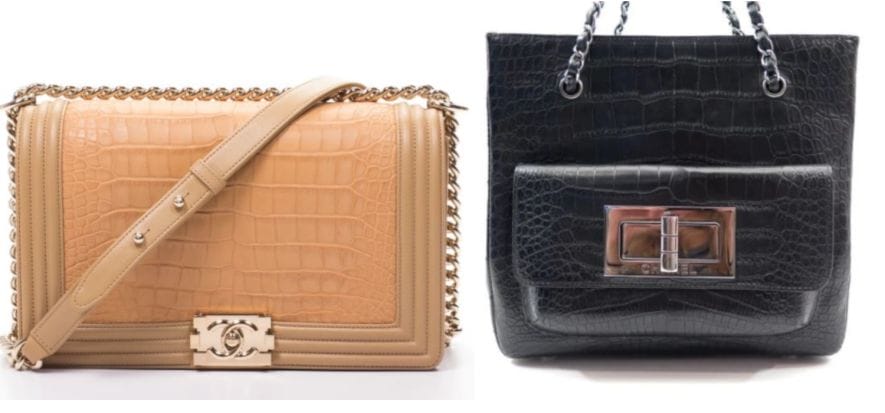To begin with, Bruno Pavlovsky, president of Chanel, has pointed out: “Nobody forced us to do it: it was our decision, a free choice”. Shortly after, a sharp twist: the French fashion brand says stop, for their next collections, not only to fur (many other competitors made the same decision about that) but also to exotic hides and skins (including crocodile, snake and lizard). As reported by WWD, such choice is mostly based on the supply chain issue: Chanel remark they regretfully can’t find any reliable suppliers, whose raw hides and skins are not compliant with the company’s quality standards. While making it public, during the fashion presentations held in New York, Pavlovsky cleared up that Chanel will take some time to sell out all their products made of exotic leather, which are currently for sale in the stores. As for leather provision, Chanel are now planning to focus on well-known companies that belong to the “agri-food” supply industry. Analysts, questioned by international press, have come up with a few business issues (for example: will the fashion house manage to offset, in their financial statements, high profits previously granted by reptile accessories?) and some marketing topics as well. However, the news is vaguely sad for the leather industry. On the other hand, one must consider that Chanel, unlike its luxury competitors (such as Hermès, Kering and LVMH), is the only brand without any tanneries specialised in reptile skin nor breeding farms: hence, the difficulties they are facing to find a reliable supply chain are well understandable. Yet, the decision made by the prestigious fashion house might potentially set a risky precedent. In autumn 2017, following Gucci’s decision to say stop to fur, several fashion brands, web retailers and fashion shows turned quickly to fur-free production; likewise, Chanel’s choice, which reminds of the similar initiative taken by DVF a few weeks ago, moves forward the edges of ethics that apply to fashion. Looks like a bulwark has collapsed: at this point the managers of top brands, which have already said stop to fur while facing the acrimony of extreme animal-rights activists, might possibly decide, just for precaution (in other words, to cover their backs), to apply the same decision to exotic leather.
Chanel say stop to exotic leather: “We do not use it anymore because we can hardly find reliable suppliers”











